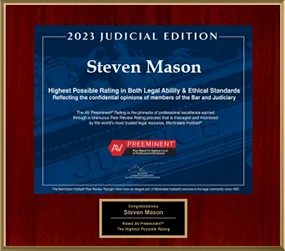Severability in Prenuptial Agreements
Prenuptial agreements (often referred to as prenups) are, at the root of matters, just like many other types of contracts concluded every day. Essentially, two parties are contracting to handle future transactions in a specific manner, in exchange for stipulated consideration. However, like any other contract, sometimes only parts of an agreement will be valid. Whether or not the remainder will be upheld is a question of severability.
Florida Law
Generally, prenups in Florida are governed by the state’s statute Sec. 61.079, which lays out the issues upon which two parties may contract. Some questions that are common in divorces may not be disposed of in a prenup, such as a child’s right to support from both parents (to unilaterally dictate that one parent need not pay, for example, is considered contrary to public policy), but most, like asset distribution or relocation rights, are permissible to include.
Sometimes, a prenuptial agreement may be found to be invalid, and in such cases, the entire agreement may be scrapped if it is ruled to be fundamentally inequitable to continue to enforce it. Examples of situations like this include showings that the prenup was executed under duress, or that one party was not given enough time and information to properly evaluate the document. In these cases, severability may be irrelevant since the entire document will likely be ruled invalid.
When Severability May Apply
When disputes arise over the contents of a prenup, the spouses may decide to simply ignore the provision in question, or they may attempt to have it changed. If the spouses cannot agree, they may attempt to have the provision severed, assuming their prenup contains a severability clause. Severability clauses in contracts are intended to provide a legal opportunity to excise a provision that may no longer be valid or may be problematic without invalidating the entire contract (in this case, the prenup). For example, a provision regarding asset distribution may turn out to be unenforceable due to no longer having the asset, which would mean the distribution rubric would have to be reworked.
Florida’s prenuptial agreement law is based on the Uniform Premarital Agreement Act (UPAA), which states clearly that rules of severability and other construction-related rules are to be “taken from state rules and principles.” Florida’s law expresses a clear preference for severability, rather than ruling an entire contract invalid, because throwing out valid contracts creates more work for the parties, the court and everyone else involved. Thus, if your prenup turns out to contain an erroneous or otherwise unenforceable provision, that section can be excised without having to redraw the entire prenup.
Valid Prenuptial Agreements Require Experienced Legal Help
Prenups, like every other contract, require the help of someone who is well versed in the type of law that the prenup will cover. A good attorney can help you pinpoint potential weak spots in your prenuptial agreement, potentially saving you countless amounts of time and trouble. Contact the Fort Lauderdale and Hollywood Law Offices of Steven A. Mason, P.A. for legal advice at 954-963-5900 or leave a message online.






















